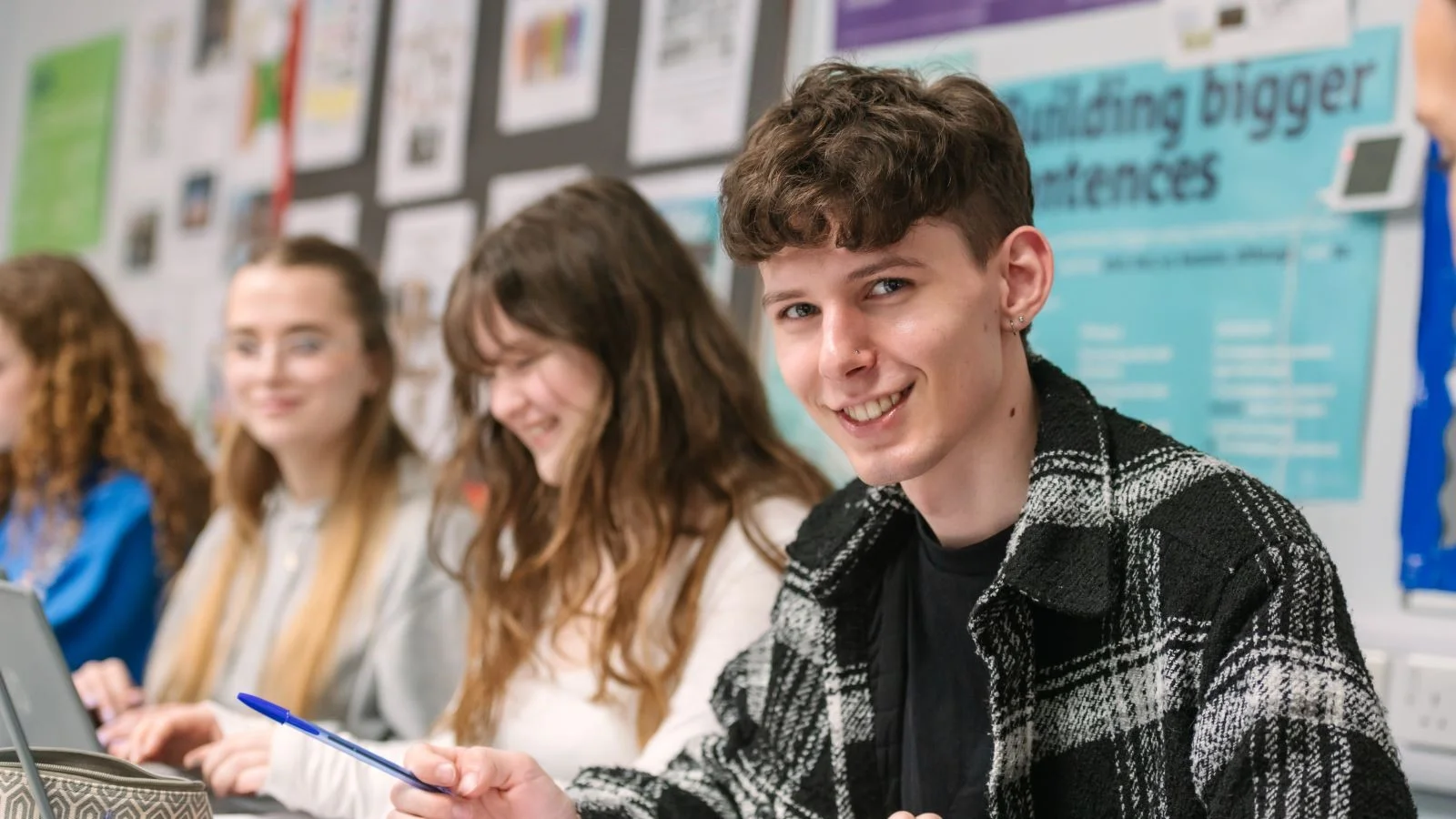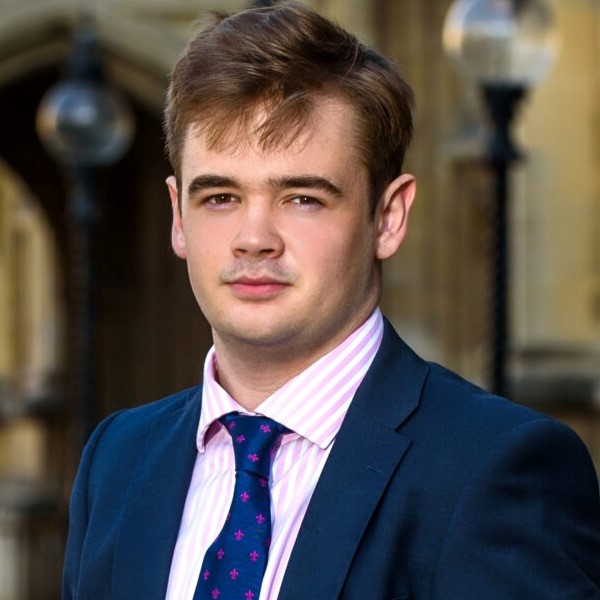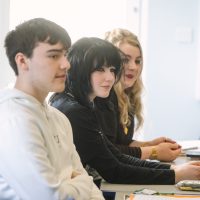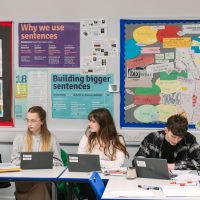
English Language
If you are interested in the English language itself – how we use language for different purposes, how speech differs from writing, and whether gender makes a difference to language-use, then this will be the right course for you. You will explore a diverse range of topics, including how we shape our identities according to our gender, dialects, ethnicity/diversity & power, occupation and class. As you do so, you will develop the skills of analysis, grammar and writing. Students also learn about how the English language has evolved over the last 450 years and the ways in which children acquire speech and literacy.
During the course, you will have the opportunity to produce a variety of creative writing coursework from opinion articles, reviews and memoirs, worth 20% of the final grade. In the second year, you also collect your own data to undertake an Investigation unit, based on a specific linguistic area.
- Unit 1 – Exam Language Variation: 35%
The language of identity
Language change from 1550 - Unit 2 – Exam Child Language: 20%
Speech or literacy development - Unit 3 – Exam Investigating Language: 25%
Research project on a key topic: Gender/ Power/ Journalism/ Dialect/ World Englishes - Unit 4 – Coursework Crafting Language: Creative writing: 20%
Two creative nonfiction texts & one commentary
I chose English Language because I loved analysing texts at GCSE and wanted to take this a step further by looking deeper at how language is formed over time, as well as how individuals use language. The child language acquisition module was my favourite as I loved looking into the psychology behind how children can pick up language and how this can affect their speech and writing skills. I also enjoyed the language change module from which I learnt all about how our language has evolved over thousands of years and its major influences, such as the invasion of the Vikings and the Renaissance era.
Jake Stratford, ex Peacehaven Community School
Course Essentials
Courses Available
A Level
How The Course is Assessed
80% exam / 20% coursework
Career Pathways
English Language students go on to take a variety of degree courses, including English Language and Linguistics, Journalism, Education and Creative Writing. This subject can lead to working in journalism, PR, teaching, law, speech therapy and any other career where the ability to communicate and use language effectively is valued. Other options available include: Digital Copywriter, Editorial Assistant, Teaching, English as a Foreign Language Teacher and Web Content Manager, Librarian, Advertising Account Executive, Arts Administrator, Information Officer, Public Relations Officer.
Transferable Skills
Written competence and accuracy; speaking and communication skills; the ability to structure and organise arguments; widened vocabulary; improved use and grasp of grammar; analysis of texts; drafting and editing; IT skills.
Other Information
Our popular Creative Writing enrichment class meets weekly and has produced prize-winning and published writers. It is open to anyone interested in creative work. Course trips have involved taster days at local universities and visits to the British Library and Dr Johnson's house for language change.
Enquiries To
Tess McGivney: tem@varndean.ac.uk

Ted Jeffery
Studied: English Language, Sociology, Creative Media Production + EPQ
Progression:
BA in Journalism & MA in Diplomacy & Foreign Policy, City University London
Ted studied at Varndean between 2015-2017, during which time he was also a radio presenter and ward volunteer for Southlands Hospital Radio whilst also gaining work experience at local media company, David Andrews Media. He went on to study Journalism at City, University of London, where he graduated last year with a 2:1.
Whilst studying for his degree, Ted worked as a freelance journalist for many different organisations and platforms such as Tremr, The Backbencher, The Distiller and Wolves of Westminster. He was also a regular guest on local Latest TV News, where he got his first taste of being a political pundit, offering his opinion, analysis and predictions on the weeks’ news. This led to a one-year internship for Frontline Club Charitable Trust where he assisted with the organisation of events and produced his own podcast with BBC Political Editor, Nick Robinson, which gained 1000+ listeners within the first week. Further freelance contracts followed working for Sky News on the 2019 General Election, C&S Earthquake, Politics Home, Rory for London, Comment Central, Global Vision UK, Reach plc and Blue Sky Digital Consultancy.
In 2020, Ted took up a Masters in Diplomacy and Foreign Policy with City University of London and has recently returned to work for UK political media platform Wolves of Westminster, this time being appointed as Editor in Chief.





